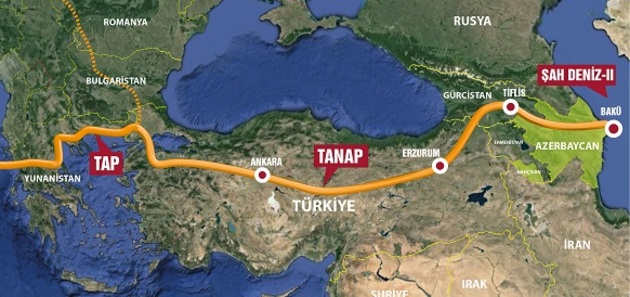The planned commissioning of the 10 Bcm a year Trans Adriatic Pipeline (TAP) has not been affected by the escalation of the armed conflict between Armenia and Azerbaijan over Nagorno-Karabakh, Azerbaijan's state oil company SOCAR said.
Now The TAP pipeline is scheduled to start operations by the end of this year, carrying gas from Azerbaijan's Shah Deniz gas field from the Turkey-Greece border via Albania to Italy.
"Neither the export volume nor the schedule for TAP commissioning has changed so far," Socar spokesman Ibrahim Ahmadov said.
"We have modeled possible scenarios and taken all necessary precautions in order to prevent or reduce damage in case of another attack," he added, saying that a second "attempted attack" had occurred in the same area.
Azerbaijan government officials said Armenian forces had fired a cluster rocket late Oct. 6 that struck 10 meters from the South Caucasus gas pipeline (SCP) and the BTC oil pipeline in the central-western Yevlakh district, well away from the three decade-long conflict zone, but reported that no damage was caused to either pipeline.
BP, which operates the Shah Deniz gas field, said Oct. 7 it was "deeply concerned" about the expansion of the conflict between Armenia and Azerbaijan and in particular the reported targeting of pipeline infrastructure.
The Armenian armed forces committed a large-scale provocation, subjecting the positions of the Azerbaijani army to intensive shelling from large-caliber weapons, mortars, and artillery installations of various calibers in the front-line zone on Sept. 27 at 05:00 (Msk). The command of the Azerbaijani Army decided to launch a counter-offensive operation of Azerbaijani troops along the entire front to suppress the combat activity of the Armenian armed forces and ensure the safety of the civilian population. To date, the city of Jabrayil and most of the Jabrayil district, more than half of the Fizuli district were liberated in the south, and the strategically important Murovdag mountain and the so-called sixth fortified area around the village of Sugovushan in the north were liberated.






